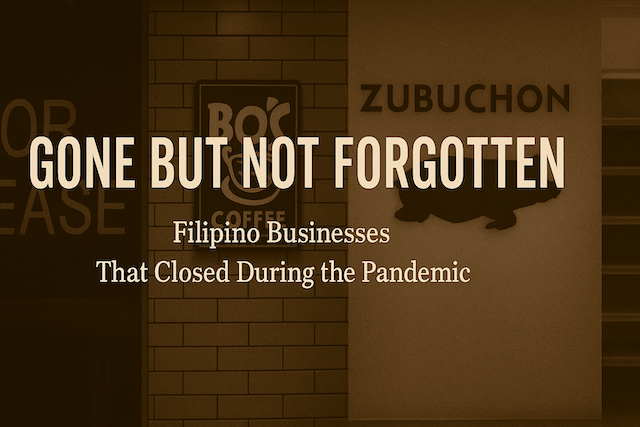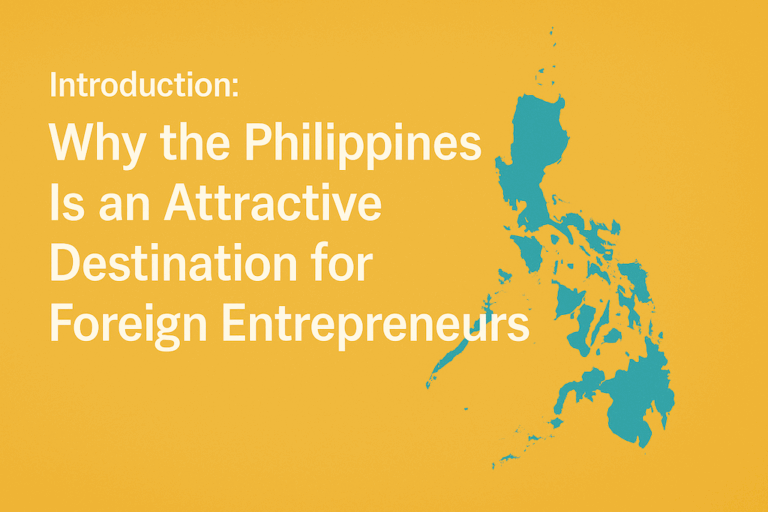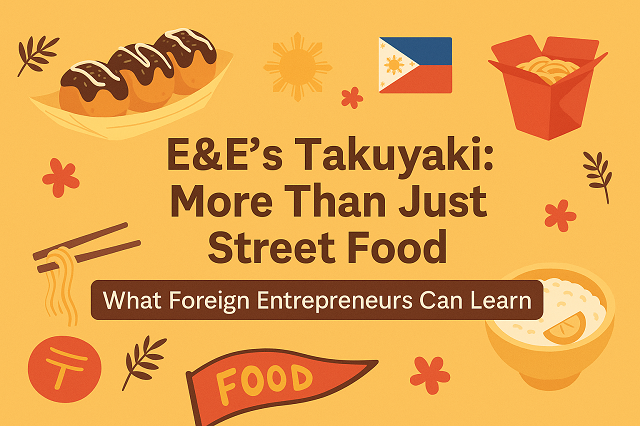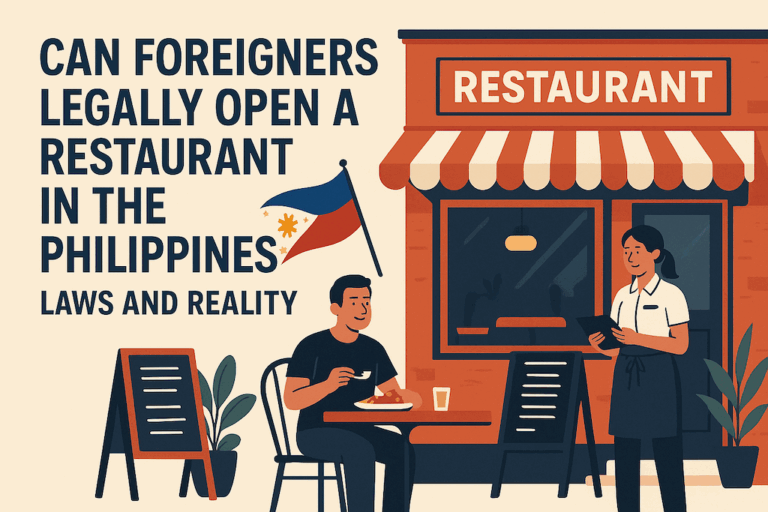Gone but Not Forgotten: Filipino Businesses That Closed During the Pandemic
Contents
Gone but Not Forgotten: Filipino Businesses That Closed During the Pandemic
A tribute to the brands, shops, and schools we once loved — and lost
Introduction
When we think of the pandemic, we often think of face masks, lockdowns, and social distancing. But for many Filipinos — and even for foreign students, digital nomads, and tourists — the most painful losses were not just personal or medical. They were local.
They were the cozy cafés where we spent hours chatting with friends.
The bookstores where we browsed for school supplies and last-minute gifts.
The lechon restaurants that felt like home every Sunday.
And the ESL schools that welcomed students from across Asia, all eager to learn English under the warm Philippine sun.
These places were more than businesses.
They were memories.
They were part of a life we didn’t realize was so fragile — until it disappeared.
The COVID-19 pandemic didn’t just pause life; it ended it for thousands of businesses in the Philippines. From Manila to Cebu, from big brands to humble family-run shops, closures happened quietly — sometimes overnight. And as the world slowly returns to normal, we begin to notice:
“Wait, wasn’t there a shop here before?”
This article is a tribute.
To the brands that shaped our routines.
To the teachers, waiters, baristas, and clerks who made our lives a little brighter.
To the Filipino spirit of service and hospitality — interrupted, but not erased.
Let’s take a moment to remember the businesses that closed their doors during the pandemic — but still live on in our memories.
Beloved Filipino Brands That Closed
While some global brands had the resources to survive, many beloved Filipino businesses didn’t have the same safety net. Their closures were not just economic losses — they felt personal. These were the places where birthdays were celebrated, late-night cram sessions happened, or quiet comfort was found after a long day.
Here are some of the most missed Filipino businesses that shut down during the pandemic:
🥘 Zubuchon (Selected Branches Closed)
Famous for its “no MSG” promise and crispy Cebu lechon, Zubuchon was more than just a restaurant — it was a culinary landmark for locals and tourists alike. When international travel halted and dine-in services were suspended, many branches struggled. Though the brand still exists, several beloved locations quietly closed, especially in Cebu City.
☕ Bo’s Coffee (Franchise Outlets Lost)
A proudly Filipino coffee chain, Bo’s Coffee was once seen as the local challenger to global names like Starbucks. But when malls emptied out and remote work became the norm, some franchised outlets couldn’t survive the drastic drop in foot traffic. For many, losing their neighborhood Bo’s felt like losing part of their daily rhythm.
📚 National Bookstore (Downsizing Quietly)
A household name for generations, National Bookstore was hit hard as schools shifted to online learning and demand for physical supplies dropped. Though still in operation, several provincial and mall-based branches closed down — leaving students and book lovers searching for new ways to get their fix of pens, papers, and Philippine literature.
🎓 ESL Academies (Numerous Closures)
The English-as-a-Second-Language industry, once booming in the Philippines, faced a sudden and brutal collapse. Travel bans meant that schools catering to Korean, Japanese, and Taiwanese students saw enrollment drop to zero. While major players like 3D ACADEMY pivoted to survive, dozens of smaller schools in Cebu, Baguio, and Clark were forced to shut down permanently.
🏨 Hotels in Tourist Areas (Especially Mid-Range)
From cozy hostels to mid-range hotels in Moalboal, Boracay, and Tagaytay, many hospitality businesses closed their doors for good. Some were never able to reopen after the first ECQ (enhanced community quarantine), while others tried to reopen briefly but couldn’t sustain operations with limited guests. These closures didn’t just impact tourists — they affected entire local economies dependent on tourism.
Why These Closures Mattered
When a business shuts down, it’s not just about a physical space disappearing — it’s about what that space meant to people.
Each closure during the pandemic rippled outward, touching lives in ways that statistics can’t fully capture. Behind every shuttered café, classroom, or storefront were people, routines, memories, and dreams.
💼 Jobs Lost, Lives Interrupted
For thousands of employees, these closures meant more than losing income. They lost communities. Baristas who had regulars they knew by name. Teachers who mentored international students and watched them grow. Security guards, janitors, kitchen staff — all found themselves jobless almost overnight, with little warning and few alternatives.
📉 Small Businesses = Big Impact
In the Philippines, over 99% of businesses are micro, small, or medium enterprises (MSMEs). They aren’t just economic engines — they’re the lifeblood of local neighborhoods. When one closes, it takes with it a web of relationships: suppliers, delivery riders, families who depended on that income.
💔 Cultural and Emotional Value
Some closures hurt more than others — not because they were big, but because they were beloved. That cozy café where you had your first date. The ESL school where you made lifelong friends. The bookstore you visited every school year. These places were emotional anchors, woven into the personal histories of their patrons.
🏙 Cityscapes Changed, Silently
Walk around cities like Cebu or Baguio today, and you’ll see empty lots, faded signs, and once-busy establishments now replaced by “For Lease” banners. The urban rhythm feels different. It’s not just what’s gone — it’s the silence left behind.
🌏 Impact on Foreign Communities
For international students — particularly from Japan, Korea, and Taiwan — some of these businesses were touchstones in a foreign land. Their closure left emotional and logistical gaps. As one student put it,
“I didn’t just lose a school. I lost my second home.”
These closures mattered not just because businesses failed — but because people lost connection, comfort, and community.







